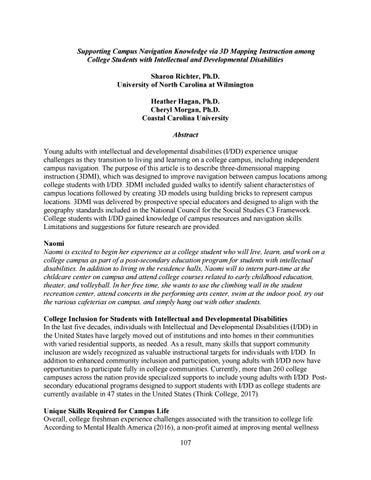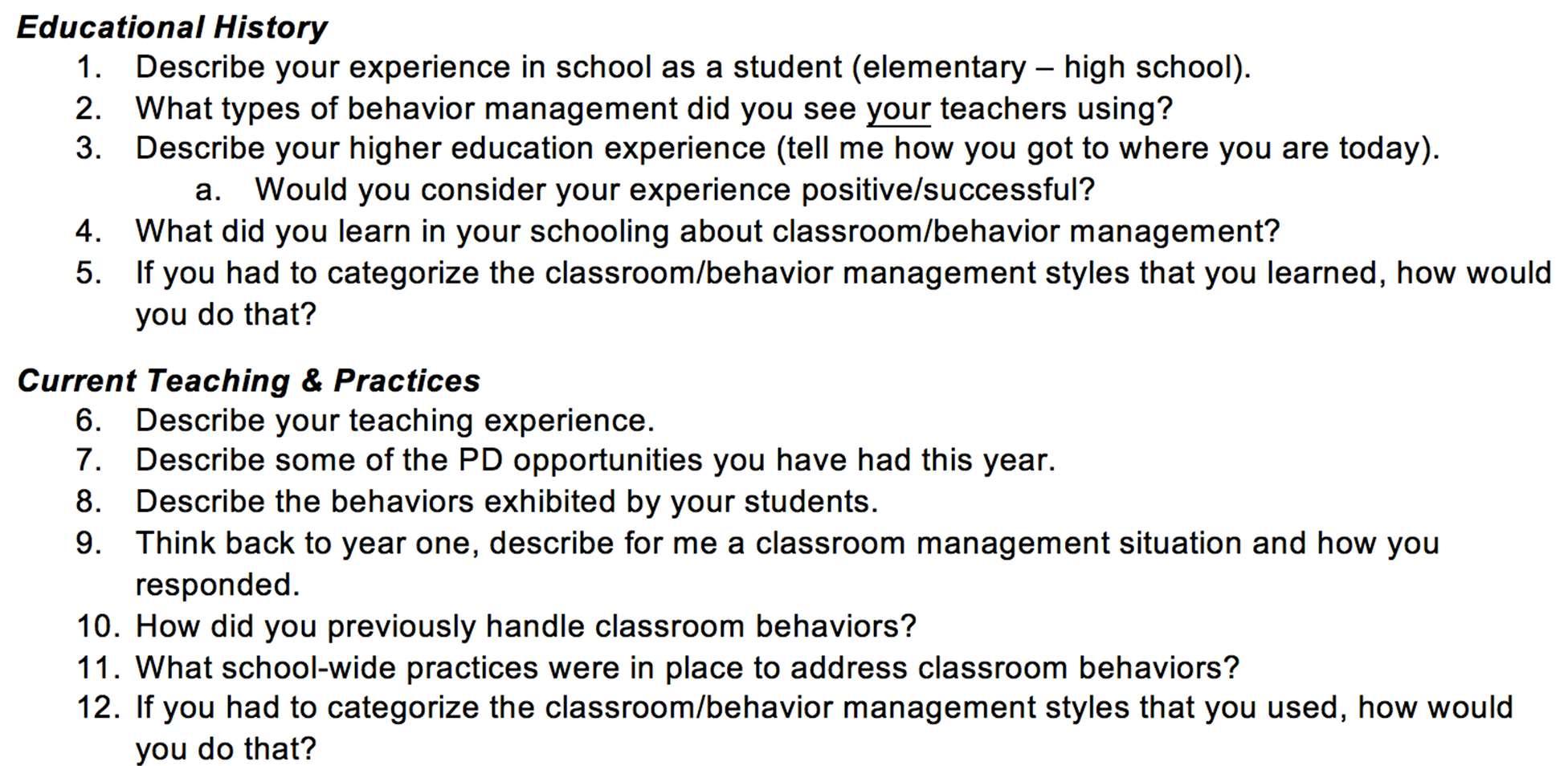Supporting Campus Navigation Knowledge via 3D Mapping Instruction among College Students with Intellectual and Developmental Disabilities Sharon Richter, Ph.D. University of North Carolina at Wilmington Heather Hagan, Ph.D. Cheryl Morgan, Ph.D. Coastal Carolina University Abstract Young adults with intellectual and developmental disabilities (I/DD) experience unique challenges as they transition to living and learning on a college campus, including independent campus navigation. The purpose of this article is to describe three-dimensional mapping instruction (3DMI), which was designed to improve navigation between campus locations among college students with I/DD. 3DMI included guided walks to identify salient characteristics of campus locations followed by creating 3D models using building bricks to represent campus locations. 3DMI was delivered by prospective special educators and designed to align with the geography standards included in the National Council for the Social Studies C3 Framework. College students with I/DD gained knowledge of campus resources and navigation skills. Limitations and suggestions for future research are provided. Naomi Naomi is excited to begin her experience as a college student who will live, learn, and work on a college campus as part of a post-secondary education program for students with intellectual disabilities. In addition to living in the residence halls, Naomi will to intern part-time at the childcare center on campus and attend college courses related to early childhood education, theater, and volleyball. In her free time, she wants to use the climbing wall in the student recreation center, attend concerts in the performing arts center, swim at the indoor pool, try out the various cafeterias on campus, and simply hang out with other students. College Inclusion for Students with Intellectual and Developmental Disabilities In the last five decades, individuals with Intellectual and Developmental Disabilities (I/DD) in the United States have largely moved out of institutions and into homes in their communities with varied residential supports, as needed. As a result, many skills that support community inclusion are widely recognized as valuable instructional targets for individuals with I/DD. In addition to enhanced community inclusion and participation, young adults with I/DD now have opportunities to participate fully in college communities. Currently, more than 260 college campuses across the nation provide specialized supports to include young adults with I/DD. Postsecondary educational programs designed to support students with I/DD as college students are currently available in 47 states in the United States (Think College, 2017). Unique Skills Required for Campus Life Overall, college freshman experience challenges associated with the transition to college life. According to Mental Health America (2016), a non-profit aimed at improving mental wellness 107
2020 Special Education Research, Policy, & Practice

Issuu converts static files into: digital portfolios, online yearbooks, online catalogs, digital photo albums and more. Sign up and create your flipbook.



